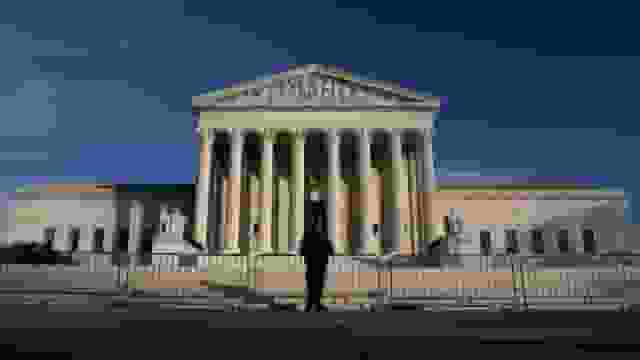Politicians in the United States have long advocated for the official sponsorship of religion and stoked moral and religious decline fears.
The crucial original conflict in Virginia was between “Give me liberty or give me death” Patrick Henry, a cunning political opportunist who opposed the U.S. Constitution, and James Madison, the document’s primary author and steward.
Henry was defeated by Madison’s arguments and cunning. When Henry first proposed it in November 1784, it was well-liked. However, by the winter of 1785, after Madison had finished, the state General Assembly had abandoned Henry’s plan to tax all Virginians to fund Christian churches and preachers.
The “Memorial and Remonstrance Against Religious Assessments,” written by James Madison in June of that year, is a key document that outlines the conceptual foundations of both religious freedom and nonreligious freedom in America.
Madison delivered 15 different broadsides against the bill after successfully delaying it and shrewdly backing Henry’s appointment to the governor to get him out of the way in the legislature.
The Virginia Statute on Religious Freedom, another foundational document for America’s commitment to religious freedom, was prepared by Thomas Jefferson and approved by the assembly in January 1786 under Madison’s supervision. On his gravestone, Jefferson claims to be the author of this law. He omits to mention the presidency.
In addition to serving as a master class in political scheming, Madison’s carefully orchestrated, sustained intellectual and practical assault also serves as the most convincing justification for the separation of church and state drafted by the chief negotiator of the Constitution and the Bill of Rights.
Following the passage of the Constitution in 1788 and the First Amendment in 1791, Madison and Jefferson’s victory in Virginia eventually resulted in the Free Exercise and Establishment clauses of religious freedom.
Madison’s response against Henry’s plan to compel taxpayers to fund Christian religious organisations was multifaceted, dynamic, and well-researched in terms of history and reasoning.
Author Michael Signer of “Becoming Madison: The Extraordinary Origins of the Least Likely Founding Father” explains it thus.

He began by raising the most fundamental problem. Religion, according to Madison, belongs to the conscience, not the government. Men could not be made to follow other men’s rules while only taking into account the evidence that was “contemplated by their own thoughts.” Therefore, religion was and must always remain outside the purview of politics, the state, and indeed any other tools of human power. He clarified that was exactly what Thomas Jefferson intended when he used the already well-known term “unalienable” in the Declaration of Independence.
Since religion depends solely on men’s minds, their reason, and their conscience, the state cannot genuinely support it.
Henry, subsequently a leader of the anti-Federalists and nominally opposed to large-scale government, intended to utilise it to support and advance Christianity, which he saw was under attack. Sounds familiar?
But Madison had hauled him out from under the framing. Madison wrote down her observations on the back of an envelope as Henry spoke. He thought that rather than asking if religion was required, the real question was whether religious institutions were necessary for religion. “No,” was his response.
Madison began by attacking Henry’s plan, then followed that up with 14 more careful counterarguments. from the signer
He said that by treating the religious class differently from other classes, the evaluation violated the equality principle.
He denounced the “arrogant pretence” that the civil magistrate, represented by the legislative body and tax authority, could be a “capable judge” of religious truth.
What have been its fruits, he queried, after 15 centuries of the legal institution of Christianity? He made the sarcastic observation that state participation in religion had only resulted in the clergy developing vanity and indolence, the laity developing ignorance and servitude, and both groups developing superstition, intolerance, and persecution.
Madison described how politics and religion have been entwined throughout history to support despotic regimes. He foresaw widespread upheaval and pondered what would stop the government from choosing one Christian sect over another if it could favour Christianity over other faiths.
Read more:-
- Following Russian ships in the Baltic using France’s aerial surveillance
- Netflix Dismisses 300 Employees as Subscription Numbers Are Falling
- Democratic opposition to Biden’s gas tax pitch, but a GOP victory on gun safety
In doing so, he reversed Henry’s logic, claiming that Virginians might actually defend their Christian religion by rejecting Henry’s bill since it was “adverse” to the “spread of the light of Christianity.” from the signer
He ended on optimism rather than dread. He referred to the right to freedom of religion as a “gift of nature.” The executive and judicial branches, as well as all personal freedoms, could potentially be “swallowed up” by the legislature if Henry’s measure were to succeed.
The freedoms, prosperity, and happiness of the Commonwealth may be “established more solidly” if Virginians, on the other hand, fulfilled their obligation to God, the “Supreme Lawgiver of the Universe.”


